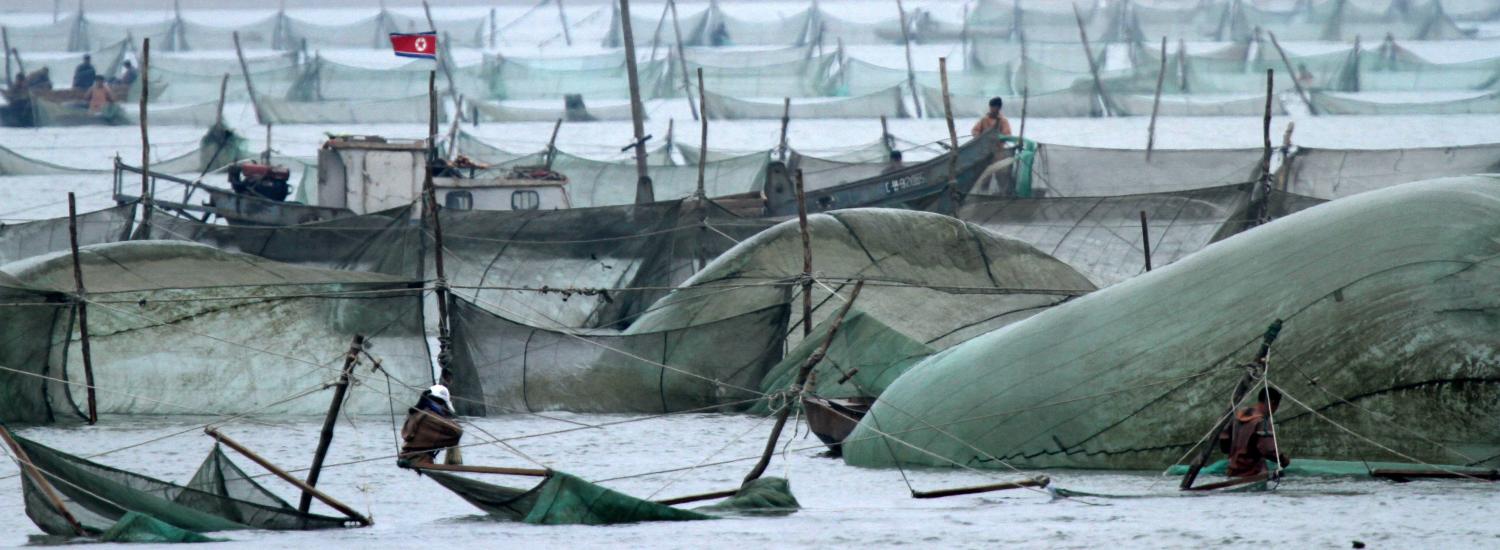A myth told and re-told in the West is that North Korea, a 'hermit kingdom' and 'pariah state', is cut off from the outside world. North Korean people suffer indescribable isolation, socially, politically and geographically. But as Justin Hastings, Associate Professor in International Relations at the University of Sydney, argues in his new book, North Koreans at all levels of society, from the top to the very bottom, are less economically isolated and more integrated into the global economy than we might imagine.
A Most Enterprising Country: North Korea in the Global Economy is an attempt to explain how North Korea, despite its isolation, stays afloat through trade and integration in the global economy. It is a hard task, not only because the quality and quantity of trade 'would be unrecognizable to many other states in the international system', but also because reliable data is notoriously sparse. But Hastings sets out to detail the extent of North Korea’s international trade networks, and how it produces, distributes and sells goods, labour and information through global networks.
The journey begins in the 1970s, when North Korean embassies became 'revenue centres' and were required to be self-resourcing and funnel money back home. The 1990s brought the end of the Cold War, a deadly famine ('the Arduous March') and the collapse of the formal economy, which served as a catalyst for structural change at all levels. This sets the scene for the story of how North Korean state, private and hybrid trade networks have adapted to a new economic reality in which they can no longer rely on the state for their food and financial needs. Instead, engaging in enterprise through illicit and informal networks between North Korea and China became the norm, enabled by a relatively kind international environment but which later managed to overcome the harsher sanctions levied by the UN in 2006 in response to the North’s first nuclear test.
The book then details how the North Korean state navigated this inhospitable environment and operated globally using state resources to raise money and bring back goods, focusing on the import of nuclear components and dual-use goods, and the export of weapons. From Japan to Germany, through Chinese and Taiwanese brokers and ethnic community links in Japan, North Korean traders fit into and made use of global trade flows. North Korean embassies sold counterfeit cigarettes and hard drugs on a global scale, and traded missile technology for nuclear weapons technology with Pakistan. In all of this, China is the gateway.
The focus then shifts from state to populace in the 'new' North Korea, with its culture of bottom-up entrepreneurialism. The book explores how private traders in small networks duck and dive on the borderlands of North Korea, making use of the ethnic Korean community in northeast China to serve their trading needs. Some 'hybrid' traders assume fluid identities between state and private status, trafficking drugs over the border into China and onwards into the global supply chain. Private traders buy rank in state organisations and officials assume identifies as private traders to navigate the illegal environment. Whatever works.
Hastings then turns his attention to the business environment within North Korea. He asks 'why North Korean trade networks can be so effective while North Korea itself remains so far behind economically'? He attempts to answer this question by investigating the experiences of foreign companies in North Korea. Unsurprisingly, many struggle and those which remain keep their operations lean and take on the characteristics of North Korean traders to survive.
Hastings is careful not to jump to conclusions or make value judgements in response to big questions about economic reform and denuclearisation, but suggests that what we can take away from his research is that North Korean people of all statuses have proved that they can survive separately from the state. He avoids the moralising rhetoric so often seen in books on North Korea and refuses to address polemical questions of whether North Korea is 'capitalist' or really still 'communist'. Rather, he presents the summation of years of detailed research and fieldwork simply, noting that in all he has observed and read, the North Korean economy has survived because of its enmeshment in the global economy, albeit mainly through the Chinese gateway, which remains a vulnerability.
Hastings draws on various secondary sources and makes use of the available data on North Korea, relying mainly on UN Comtrade, but also North Korea's state website and on just one occasion the Chinese Ministry of Commerce. What stands out is the extensive and up-to-date use of interviews conducted with economists and academics, foreign NGO workers, think-tankers, businessmen, and trading company representatives from Seoul to Beijing and throughout the China-North Korea borderlands. A limitation of the book is that the majority of primary source material is regionally focused – future studies on North Korea in the global economy would benefit from fieldwork outside of Asia.
North Korea in the Global Economy is both rigorous and accessible. Stylistically speaking, this is not bedtime reading, but Hastings' work attempts to make sense of this smoke-and-mirrors nation, and is determined to bring rational insight to light for consideration by policymakers, academics, students and anyone with a serious interest in North Korea.

